PROBLEMS ON EVALUATING DEFINITE INTEGRALS
Evaluate the following definite integrals :
Problem 1 :

Solution :
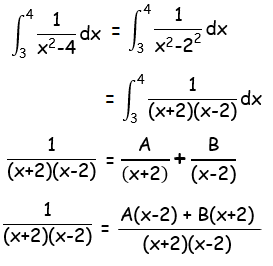
1 = A(x-2) + B(x+2)
|
Put x = 2 1 = B(2+2) 1 = 4B B = 1/4 |
Put x = -2 1 = A(-2-2) 1 = -4A A = -1/4 |
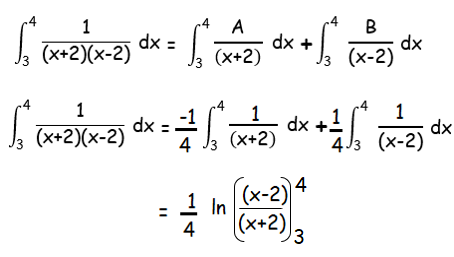
By applying the limits, we get
= (1/4) [ln(2/6) - ln(1/5)]
= (1/4) [ln (2/6) ⋅ (5/1)]
= (1/4) [ln (5/3)]
Problem 2 :

Solution :
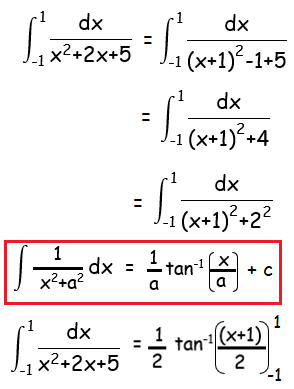
By applying the limits, we get
= (1/2) [tan-1(2/2) - tan-1(0)]
= (1/2) [π/4 - 0]
= π/8
Problem 3 :

Solution :
Let us apply trigonometric substitution.
x = cos2θ
(1-x)/(1+x) = (1-cos2θ)/(1+cos2θ)
= sin2θ/cos2θ
= tan2θ
dx = -2sin 2θ dθ
|
If x = 0 2θ = cos-1x 2θ = cos-10 2θ = π/2 θ = π/4 |
If x = 1 2θ = cos-1x 2θ = cos-11 2θ = 0 θ = 0 |
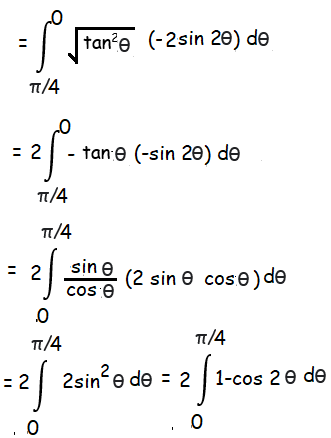
By integrating
= 2[θ-sin2θ/2]
= 2(π/4 - sin2(π/4)/2)
= π/2 - 1
Problem 4 :

Solution :
1+sinx :
sin 2x = 2tanx/(1+tan2x)
Dividing x by 2 on both sides, we get
sin x = 2tan(x/2)/(1+tan2(x/2))
1 + sinx = [1+tan2(x/2) + 2tan(x/2)] / (1+tan2(x/2))
1 + sinx = [1+tan2(x/2) + 2tan(x/2)] / (1+tan2(x/2)) ---(1)
cos 2x = (1-tan2x)/(1+tan2x)
Dividing x by 2 on both sides, we get
cos x = (1-tan2(x/2)/(1+tan2(x/2))
1 + cosx = 1 + [(1-tan2(x/2)/(1+tan2(x/2))]
= [(1+tan2(x/2) + (1-tan2(x/2)] / (1+tan2(x/2))
1 + cosx = 2/(1+tan2(x/2)) ----(2)
(1) / (2)
(1+sinx)/(1+cosx) = [1+tan2(x/2) + 2tan(x/2)]/2
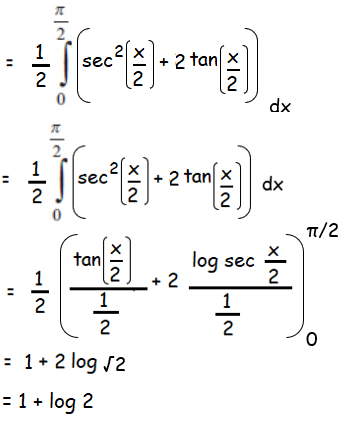
Problem 5 :
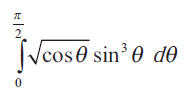
Solution :
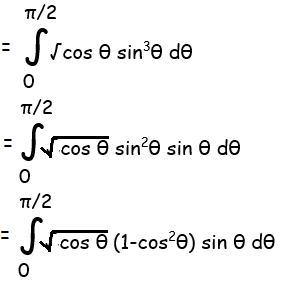
Let t = cos θ
dt = -sin θ dθ ==> sin θ dθ = -dt
When θ = 0, t = cos 0 ==> 1
When θ = π/2, t = cos π/2 ==> 0
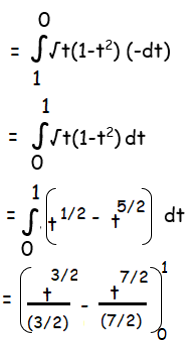
By applying the limit, we get
= (2/3) (1)3/2 - (2/7) (1)7/2 - 0
= (2/3) - (2/7)
= (14-6)/21
= 8/21
Problem 6 :
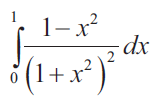
Solution :
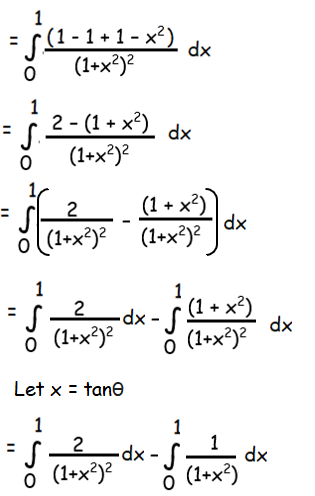
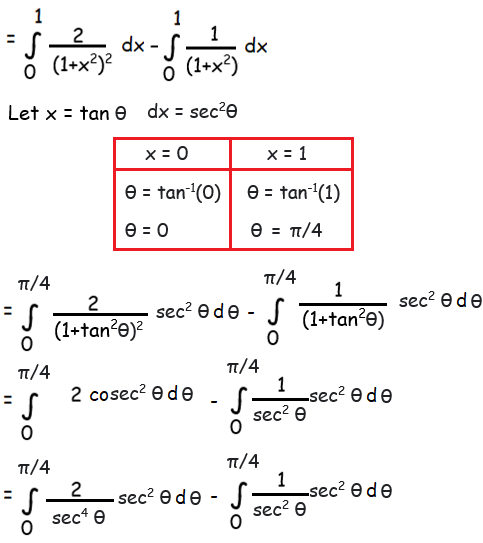
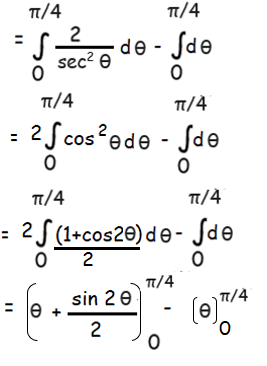
By applying the limits, we get
= [sin 2(π/4)]/2
= 1/2

Apart from the stuff given above, if you need any other stuff in math, please use our google custom search here.
Kindly mail your feedback to v4formath@gmail.com
We always appreciate your feedback.
©All rights reserved. onlinemath4all.com
Recent Articles
-
Digital SAT Math Problems and Solutions (Part - 150)
Apr 25, 25 11:46 AM
Digital SAT Math Problems and Solutions (Part - 150) -
AP Calculus AB Problems with Solutions (Part - 19)
Apr 24, 25 11:10 PM
AP Calculus AB Problems with Solutions (Part - 19) -
AP Calculus AB Problems with Solutions (Part - 18)
Apr 24, 25 11:06 PM
AP Calculus AB Problems with Solutions (Part - 18)
